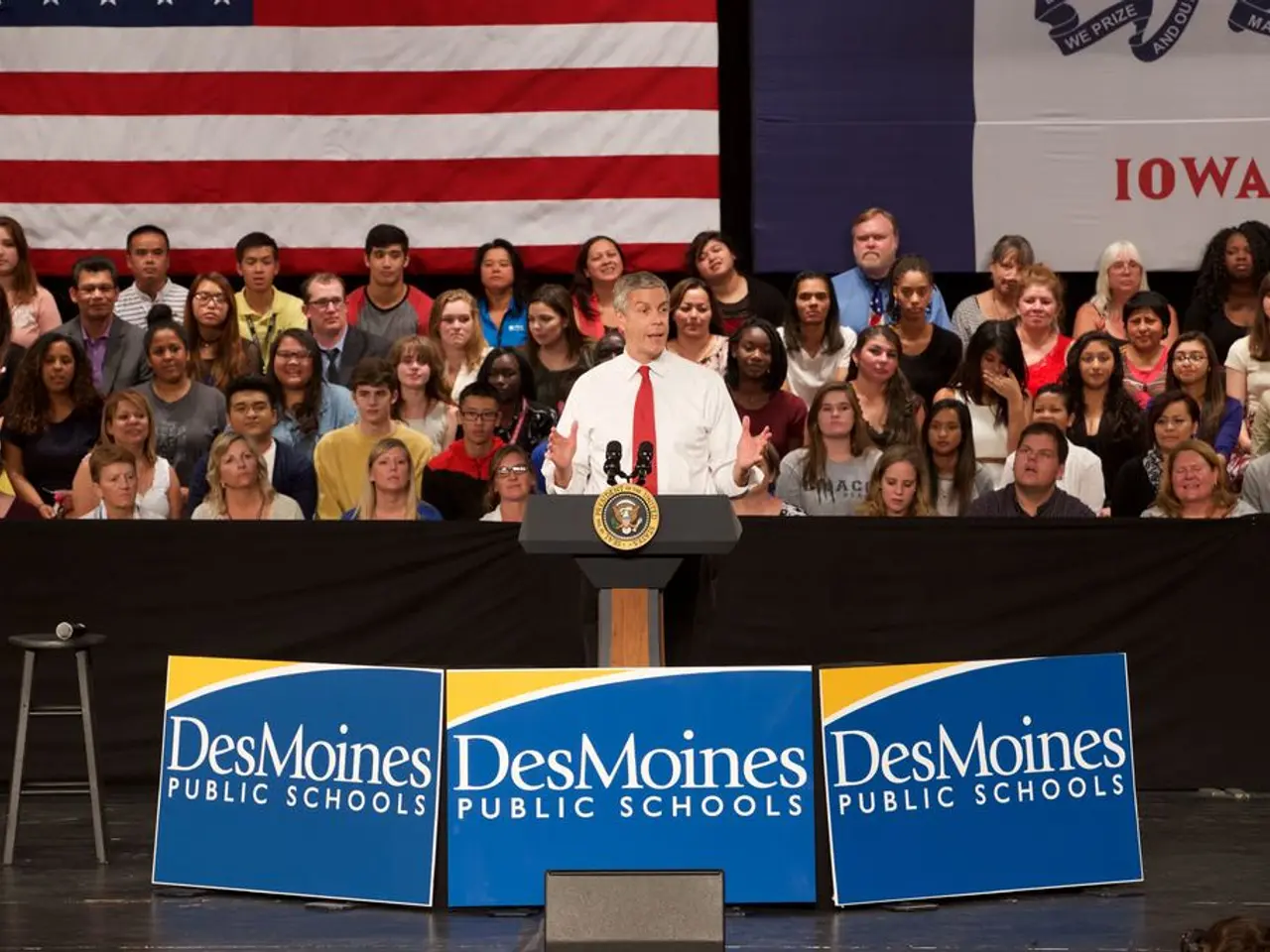Trump administration's capacity to address its own priorities may be impaired due to planned dismissals at the State Department, according to informed sources.
The mass firings of State Department employees during the Trump administration have raised concerns about the administration's ability to address key issues such as counterterrorism, energy diplomacy, and other priorities. Here's a breakdown of these potential impacts:
## Counterterrorism
The reduction in State Department personnel includes experienced employees who specialize in counterterrorism. This could lead to a decrease in the department's capacity to effectively engage in and support counterterrorism efforts around the world. The loss of specialized staff could hinder coordination with international partners and compromise the depth of expertise needed for effective counterterrorism strategies.
Moreover, the departure of key personnel might disrupt ongoing projects and relationships, leading to potential inconsistencies in the implementation of counterterrorism policies. This could result in diminished effectiveness in addressing evolving terrorist threats.
## Energy Diplomacy
The cutbacks in State Department staff could reduce the U.S.'s ability to influence energy-related diplomacy. This could limit the administration's capacity to negotiate favorable energy agreements and maintain strong diplomatic relationships with energy-producing countries, which are crucial for advancing U.S. energy interests.
Experienced diplomats play a crucial role in navigating complex energy negotiations. The loss of these experts could leave the U.S. less equipped to engage effectively in international energy discussions, potentially weakening its position in global energy markets.
## Other Prioritized Issues
Across various State Department offices, the reduction in staff may hinder the department's operational capacity to address other prioritized issues. This includes managing diplomatic missions, providing support for evacuations, and facilitating international cooperation on a wide range of policy areas.
The significant personnel cuts could impact the perceived credibility and stability of the U.S. diplomatic corps. This might make it more challenging for the Trump administration to build trust and collaborate effectively with international partners on key priorities.
Notably, the office that assists the families of U.S. citizen employees who die overseas had its entire staff fired. Similarly, the Bureau of Consular Affairs' Office of Fraud Prevention Programs saw significant cuts. That unit works to protect the integrity of all consular services from fraud.
The firings also affected offices working on issues prioritized by Secretary of State Marco Rubio, including counterterrorism, stopping drug trafficking, energy diplomacy, and mitigating passport and visa fraud. The office focused on countering violent extremism had all of its workforce fired.
In addition, the pivot to naming Latin American drug cartels as terrorist groups will increase the workload of those who make such designations. Some personnel who were fired were mid-air when they received the news, adding to the sense of chaos surrounding the firings. Other functions of the counterterrorism bureau are being eliminated entirely, further exacerbating concerns about the department's ability to address counterterrorism effectively.
Anger is mounting within the State Department over the cuts and the way they were handled. During employee town halls, hundreds of anonymous questions and comments expressing anger poured in, but leadership largely ignored them. The firings were implemented with a sense of chaos, with many employees receiving notices and then having those notices rescinded hours later.
These mass firings could undermine the Trump administration's ability to effectively address counterterrorism, energy diplomacy, and other critical issues by reducing specialized expertise, disrupting ongoing efforts, and impacting the department's operational capacity and global credibility.
- The administration's policy-and-legislation on climate-change and environmental-science could be compromised due to the loss of specialized staff in the State Department, as these issues require in-depth expertise for effective strategies.
- The reduction in State Department staff might disrupt efforts to implement policies related to general-news topics such as international cooperation on critical issues, including counterterrorism and energy diplomacy.
- The efficiency of science-related policies, like those concerning climate-change and the environment, could be affected by the mass firings, as these policies often require coordination with international partners and a depth of expertise that the loss of specialized staff might hinder.








